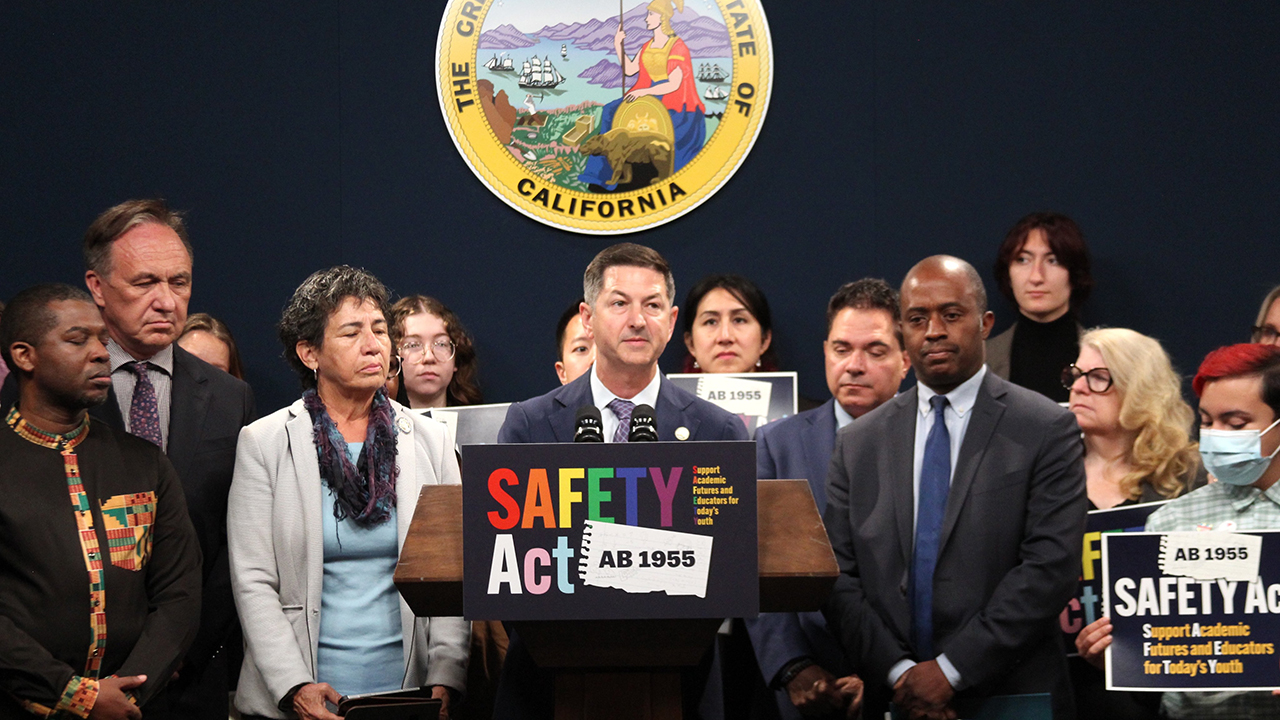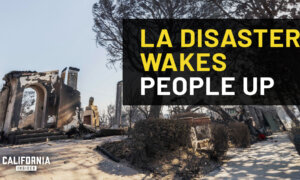The California Assembly voted 61–16 along party lines on June 27 to pass legislation that bans policies that require parents be notified if their child changes his or her gender identity at school.
Assembly Bill 1955, the Support Academic Futures and Educators for Today’s Youth (SAFETY) Act, will now go to Gov. Gavin Newsom’s desk.
Assemblyman Chris Ward (D-San Diego), who introduced AB 1955, said it’s a priority bill for the California Legislative LGBTQ Caucus.
If the governor signs it into law, the bill would prohibit school districts from enacting or enforcing any policy, rule, or administrative regulation requiring an employee or a contractor to disclose any information related to a students’ sexual orientation, gender identity, or gender expression to anyone without the child’s consent.
Proponents of the legislation call parental notification policies, such as those passed by Chino Valley Unified and Temecula Valley Unified school districts, “forced outing” policies. Opponents have dubbed the California Department of Education guidance “secrecy” policies that keep parents in the dark about their children’s social gender transitions.
Ongoing lawsuits against such school districts have produced mixed results, with a Superior Court judge temporarily blocking enforcement of Chino Valley’s policy and another judge allowing Temecula Valley to enforce its policy during trial.
Sen. Rosilicie Ochoa Bogh (R-Yucaipa) pointed out at a June 13 senate hearing that AB 1955 aims to codify into law guidance issued by the California Department of Education that school districts should not inform parents about changes in their child’s gender identity without the student’s consent.
During recent court proceedings in a case involving two Escondido Unified School District teachers who refused to comply with the guidance, state attorneys testified the guidance is not law, and therefore not legally binding.
Thomas More Society attorney Paul Jonna, who represents the teachers, told The Epoch Times last fall that the state used words like “required” and “must,” and that “basically every school district interpreted it as binding.”
Assemblyman Bill Essayli (R-Corona) said at the Thursday hearing many school districts have attempted to follow this guidance and implemented “what we call secrecy policies,” and teachers have been “put in a position to lie to parents” by referring to the child as one name to family members and a different name at school.
The debate got heated when Mr. Essayli criticized the Assembly for refusing to hear Assembly Bill 1314, proposed legislation to impose a statewide parental notification policy that he introduced last year.
As he spoke, Assembly Speaker pro Tempore Jim Wood (D-Healdsburg) cut Mr. Essayli off and ruled him out of order several times, both for discussing a different bill than the one at hand, and for “disparaging the House” by accusing Mr. Wood of “Chinese Communist Party” tactics for cutting off his microphone.
After calling a recess, Mr. Wood restored three minutes of time to Mr. Essayli.
Mr. Essayli said he disagreed that school boards are enacting policies to forcibly out kids to their parents. He said the “overwhelming majority of parents do love and care for their kids,” and while there are bad parents, school staff are already mandated to report suspicions of abuse to authorities.
Mr. Ward argued that “coming out” as LGBT is a personal decision that includes the right to privacy and that parents and guardians retain the right to request access to their student’s records under the federal Family Educational Rights and Privacy Act.














